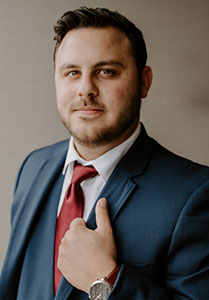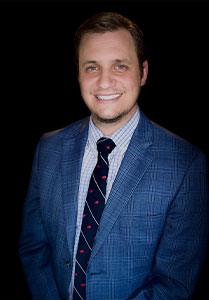If you were hurt on someone else’s property because they didn’t keep it safe, you may be feeling angry, confused, or even ashamed. You may also be wondering what to do next or how to make sure this never happens to someone else. This guide is for you. It’s written in plain, clear language so you can understand what your rights are and what steps you should take right now.
What Negligent Security Really Means
You have the right to feel safe when you’re visiting an apartment complex, parking garage, shopping center, or hotel. But when property owners don’t take basic safety steps—like fixing broken lights, not hiring security guards, or ignoring past crime on the property—it puts people in danger. If you were assaulted in a place that should have been secured, it may be because someone failed to do their job.
The First Thing You Need to Do After an Assault
After an assault, your health comes first. Get medical help right away. This isn’t just about healing—it’s also how you create a record of what happened. Be honest with your doctor about your injuries and what caused them. These medical notes could become important later if you decide to take legal action.
Make a Police Report and Get a Copy
You might not want to talk about what happened. But telling the police is an important step. It helps build a record. That record could be used to help prove that the assault happened and that it was due to a lack of security. Ask for a copy of the report. If you’re not ready to talk to the police right away, that’s okay. You can file a report later, but the sooner you do it, the better.
Write Down Everything While It’s Fresh
When something scary happens, details can slip away fast. As soon as you can, write down what happened. Where were you? What time was it? What did the area look like? Were there cameras around? Did anyone see it? Write down names, dates, and anything you can remember. These little facts can help tell the bigger story.
Why You Should Save Evidence
Don’t throw away the clothes you were wearing. Don’t delete photos or texts. These things might not seem important, but they can help prove your case. If you have bruises or cuts, take pictures. If someone saw the assault or if you spoke with security or a manager afterward, keep a note of who they are and what they said.
The team is very personable, patient and empathetic with their clients. They are upfront with you and will explain the entire process with you, they never lead you to believe otherwise, they tell you like it is and will not sell you a million dollar dream. Trust in Andrews, Bernstein & Maranto, PLLC, they work for you and he looks out for your best interest.” - Jane D.
Talk to a Lawyer Before You Talk to the Property Owner or Insurance
Sometimes a property owner or their insurance company may reach out to you quickly. They may seem nice. They may even offer you money. But before you talk to them, speak with a lawyer who understands this kind of case. What you say now could be used against you later. A lawyer can guide you, help you avoid mistakes, and protect your rights from the beginning.
Negligent Security Isn’t Just a Mistake—It’s a Legal Matter
When a property owner knows there’s been crime nearby but does nothing, they can be held responsible. When a business refuses to fix a broken lock or lets cameras stay broken, that’s not just careless—it may be the reason you got hurt. And the law gives you a way to ask for help and for justice.
What Can a Lawyer Do for You
A lawyer can help you understand if you have a case and what that case might be worth. They can dig into the property’s history, look at past complaints, and find out if the owner already knew the place wasn’t safe. They can speak to witnesses and pull video footage. Most importantly, they can hold the people who failed you responsible.
You Don’t Have to Do This Alone
This kind of case can feel heavy. But you don’t have to carry it by yourself. Whether you’re feeling scared, angry, or just tired of not being heard, there are people who can help you take action. What happened to you was not your fault. And you don’t have to stay silent.
Should I Take The First Settlement Offer? Steps to File a Personal Injury ClaimRelated Videos
What Happens If You Do Nothing
It’s natural to want to move on and forget. But doing nothing after an assault that happened because of poor security can have lasting effects. Without action, the property owner may never fix what caused your harm. Someone else could get hurt the same way. And if you wait too long, you might miss the chance to file a legal claim. In New York, the law gives you only a certain amount of time to take action. Once that time passes, you may no longer have the right to bring a case at all.
The Clock Is Ticking
New York law puts time limits on personal injury claims, including those from negligent security. This is called the statute of limitations. In most cases, you have three years from the day of the assault to start a lawsuit. But that doesn’t mean you should wait. The longer you wait, the harder it can be to find witnesses or gather evidence. Video footage may be erased. People may forget what they saw. Acting sooner gives you a better chance to be heard.
How a Case Can Help You Heal
Money won’t undo what happened. But a legal case can bring something else—justice. When someone else’s carelessness caused you to be hurt, you have the right to ask for help with your medical bills, lost work time, emotional pain, and more. A legal case can also shine a light on the danger, forcing property owners to make changes. It’s a way to take back control and to make sure your voice matters.
Verdicts & Settlements
When You’re Ready, We’re Ready to Listen
You’ve been through something hard. If you think your assault happened because someone didn’t keep their property safe, it’s time to speak up. At Andrews, Bernstein & Maranto, PLLC, we help people just like you take back their power and find a way forward. Call us today. Let’s talk about what happened, what your options are, and what steps we can take together. You’re not alone—and you never have to be again.





